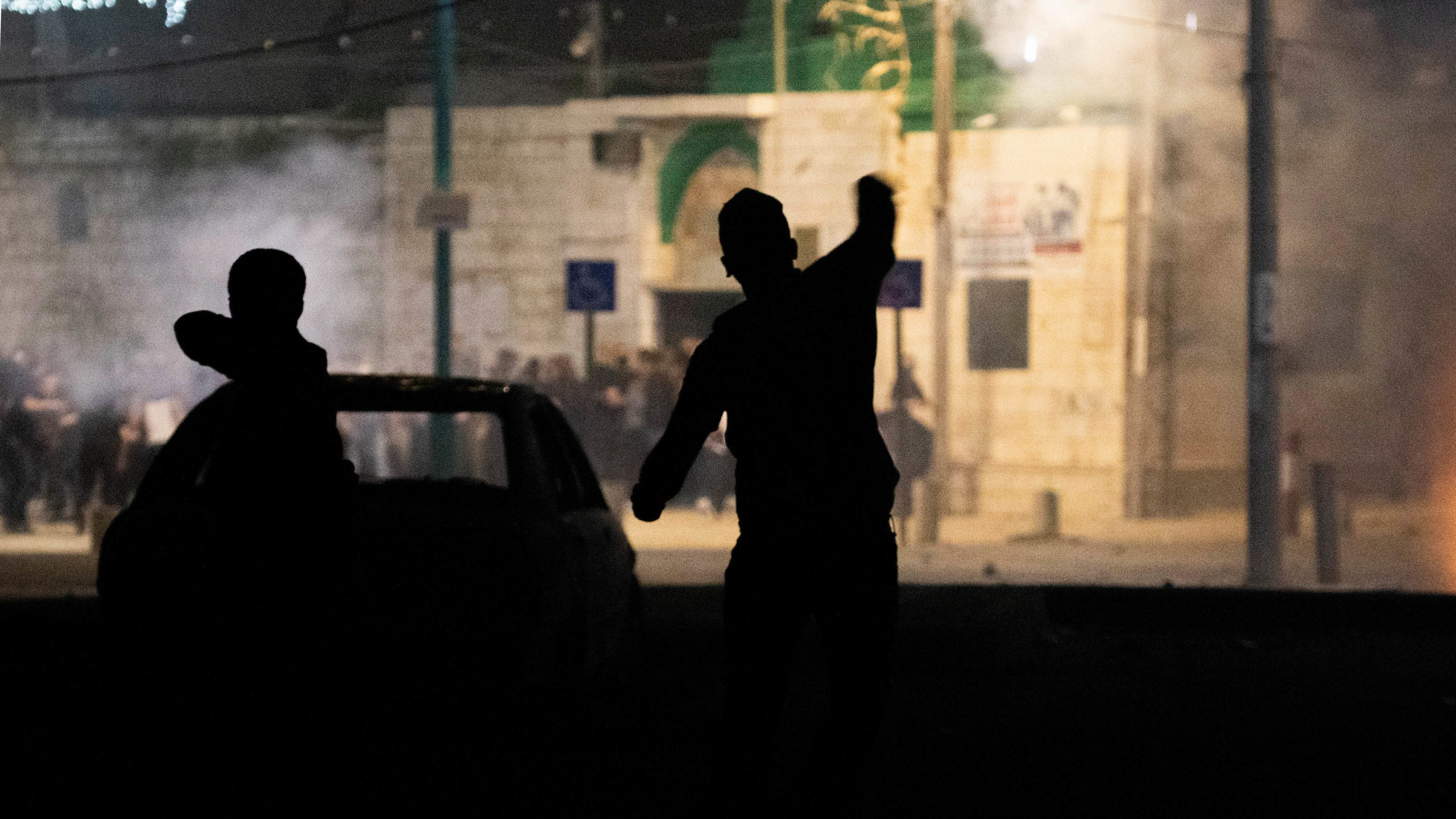Palestinian Support for a One-state Solution Is Highest Since Last Year’s Violence
Support for the controversial solution to the Israel-Palestinian conflict dropped sharply after the violent clashes between Jews and Arabs in Israel in May 2021
The one-state solution to the Israel-Palestinian conflict, once a nonstarter for most Israelis and Palestinians, is regaining popularity.
Some 33% of Palestinians in the West Bank and Gaza Strip support one state for both Israelis and Palestinians, according to a recent poll conducted by the Palestinian Center for Policy and Survey Research (PSR). This marks an unusual rise in the popularity of the one-state solution, which only three months ago had the support of less than 24% of Palestinians. Such a state would include an almost equal number of Jews and Palestinians, who together would amount to a population of nearly 14 million citizens living in Israel, the West Bank, and the Gaza Strip.
This change in Palestinian public opinion could have several reasons. Khalil Shikaki, director of PSR, explains that “after the clashes last May and June, and the escalation between Israel and Hamas, we noticed a sharp drop of support to the idea. What we see now could be the effect of time passing, and people going back to the stance they had before the escalation, which may have caused them to lose trust in the idea.”
“Supporters of the one-state solution are usually younger Palestinians, nationalist and secular. In the long run, one of the causes for this idea becoming popular is them losing trust in the possibility of the two-state solution. However, this doesn’t seem to be the case this time,” said Shikaki, who has been monitoring Palestinian public opinion for almost 30 years.
PLO member and former minister of prisoner affairs for the Palestinian Authority, Ashraf al-Ajrami, believes uncertainty about the viability of a two-state solution has led to the rise in support.
“I think Palestinians support the one-state solution because of their disappointment in the current situation,” Ajrami told The Media Line. “People don’t believe there is a situation in which the Israeli government will negotiate for a two-state solution.”
People don’t believe there is a situation in which the Israeli government will negotiate for a two-state solution
A vocal supporter of the two-state solution, Ajrami thinks the support for a single state stems from a misunderstanding of what it would mean in practice. “I think there is confusion, especially among young Palestinians. They believe they will have equal political rights, which is something the Israeli right wing would never agree to,” he said.
The numbers back Ajrami up. In a poll conducted in 2020 by Tel Aviv University and the PSR, 42% of Israeli right-wing voters openly supported “an apartheid state” as a solution to the conflict, while only 13% supported one democratic state, with equal rights for all.
A surprising advocate for a single democratic state as a solution to the conflict is David Elhayani, head of the Jordan Valley Regional Council, and one of the leaders of the settler movement in Israel. “This is where things are headed, whether we like it or not. The two-state solution is dead, and you can’t annex the West Bank and Jordan Valley without giving the Palestinians full civil equality. Anyone who says otherwise is in denial of reality,” he told The Media Line.
While Elhayani preaches for improving the quality of life of Palestinians living under his council’s jurisdiction, his stance is quite controversial among other settler leaders. “I can tell you more or less who among my counterparts would support my views, and who won’t. It’s far from a consensus,” he said.
“The idea of a binational, Arab-Jewish state was first proposed back in the 1920s and was widely rejected by both sides,” according to historian Benny Morris, an expert on the Israel-Palestinian conflict. “After the 1967 war, no one talked about it seriously, until the 1990s. But, even then, the one man who offered it seriously on the Palestinian side was asked by the PLO to stop advocating for it, and he did, very quickly.”
The official stance of the Palestinian Authority is still a complete rejection of the idea of one state for both peoples.
“Three years ago, I went to a convention discussing the one-state concept,” a member of the PA told The Media Line, on condition of anonymity. “There were people from all around the West Bank, and we talked about how this one democratic state might work. But there was absolutely no backup from above, and we never met again. The message was clear.”
There will always be extremists, from both sides, who would interfere
Ajrami seems to take the same hard line as the rest of the PLO. “The leadership understands that the two-state solution is the only viable solution, supported by the international community.” He adds, however, that if the one-state solution becomes more popular, we might see Palestinian leaders supporting it publicly.
“If, a few years from now, it will be impossible to arrive at a two-state solution, the only way [forward] for Palestinians will be the one-state solution. This was the original plan of the PLO: one democratic state across all of historic Palestine, with Jews, Christians, and Muslims living as equals,” Ajrami said.
This doesn’t surprise Morris, who claims that one state “from the river to the sea,” the Jordan River to the Mediterranean Sea, has always been the PLO’s real plan, though many say this slogan means a Palestinian state.
But Morris is far from believing that one state could ever be a peaceful solution. “There will always be extremists, from both sides, who would interfere. Either Hamas or Palestinian Islamic Jihad activists will carry out attacks, and destroy any chance for it to work,” he assesses.

